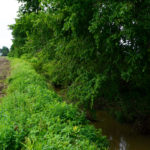Tag Archives Water quality

Melancthon faces a new quarry fight over water, environment and farmland risks
Melancthon residents and officials oppose Strada’s proposed blast quarry, citing risks to water and farmland as debate grows before the Nov. 10 deadline

Walkerton water crisis ignited collaborative effort to protect water in Ontario
It brought together government and landowners in a new way, working toward a common goal

Seeing the benefits of drainage water recycling
New report shares latest research on its potential for reducing nutrient loss and conserving water

How important is water quality for spray applications?
It’s garnering more attention in a less forgiving world

Neonic ban decision expected in six months
Health Canada said it now has further information to consider in making its decision

Harvesting riparian buffers sees little impact to water quality
Science Notes: Harvested vegetation could increase biofuel efforts
Getting the most from the water available to you
OMAFRA Field Crop Report for August 20

Better water through real farm data
Project analyzes decades of environmental and farming changes to support more fact-based water-quality policy


